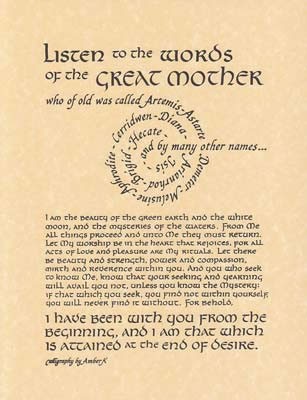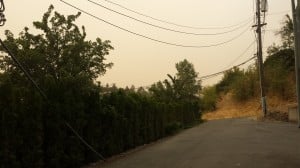In the final chapter of Seeking the Mystery, Christine Hoff Kraemer covers the question of morals, ethics and justice.
Her position, that Pagan ethics is based on virtues rather than rules, is one I absolutely support. As she points out, in Northern and Celtic reconstructionist traditions, there is often an emphasis on virtues of strength and honour; in Wicca and Wicca-influenced traditions, the diads of the Charge of the Goddess — beauty and strength, power and compassion, honor and humility, mirth and reverence — can be seen as statements of paired and complementary virtues.
Every approach to morals and ethics has its strengths and weaknesses. Moral codes have clear, firm boundaries and it is easy to tell if one is or is not following them, but they lack subtlety, and are difficult to apply in complex situations, which, let’s face it, make up most of life. A virtue-based ethical framework does not lay down ‘dos’ and ‘don’ts’, making the application of the virtues to real life situations much more flexible, but that also means that they leave the navigations of the treacherous waters of life down to the conscience, skill and knowledge of the individual and the community.
This offers greater freedom, but also a lot of hard work! Again, as Kraemer points out, it can be especially hard work when the ethics of a minority group, whose virtues and values are sometimes at odds with the dominant culture; this can be argued to be the case with Pagan virtues such as connection with and sensitivity to the non-human and more-than-human life which surrounds us, and the life-web of which we are part. When we consider place as life-web, as the dwelling not only of we humans, but also of that non-human and more-than-human life, this has serious implications for our conduct.
In my own situation, as a resident in an extremely rural location, with very limited public transport and access to services, this means that I live a less ethical life, by my own Pagan values of environmental, economic and social awareness, than when I was living in the centre of a city: I frequently use the household car to access basics like food and clothing, driving at least 15 miles – and sometimes as much as 40 – in each direction in order to feed and clothe myself. When I lived in a city, I was able to walk or get the bus. My food all comes from the supermarket. There are markets in the two nearest towns once a month where I can buy direct from producers, but the only food products available are meat and baked goods. When I lived in a city, I was able to buy fresh, organic produce from farms within a 50 mile radius every week. My social life is mainly online, and face-to-face, flesh-to-flesh contact is limited. When I lived in a city, I met a variety of friends, acquaintances and strangers every single day.
Yet self-knowledge, self-care and pride-in-self are also core to my Pagan ethics, and I know that living rurally meets needs in me that living in a city can’t; that urban dwelling leaves me soul-hungry and emotionally and energetically either hypersensitive or cut off in self-defence. So I compensate. Our house is being rebuilt with not only wind but also solar power built in, and heat through a ground-source heat pump. I’m setting aside a small corner as a rabbit-proof growing area for fruit and veg.
Because Pagan ethics is, for me, fundamentally about making choices and taking full responsibility for their consequences, intended and unintended, foreseen and unforeseen.
How about you? What choices do you make – day to day, and longer scale – to align your life with your ethics. What have the consequences been?
I hope you’ve enjoyed this blog series around ‘Seeking the Mystery’. You can buy the book online from Amazon: UK link – USA link – Canada link

















